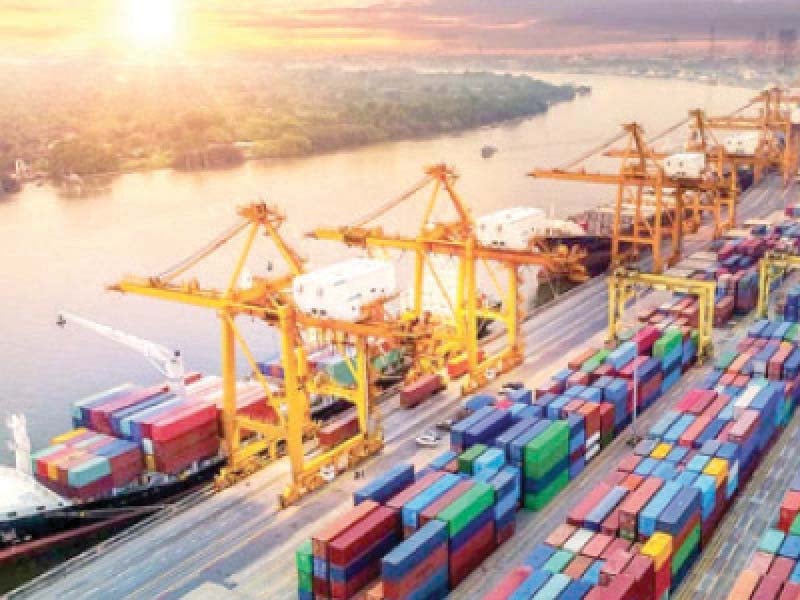
It is generally accepted that Pakistan needs structural reforms for sustained and inclusive economic growth. On the contrary, there is much less consensus on the actual contours and implications of such reforms and desired change of course. And what are the root causes of our continued struggle to walk the talk on reforms?
A transformation plan creates winners as well as losers and is never a happy win-win scenario for everyone in society. The entrenched interest groups will fight to maintain status quo and test the state’s resolve to do the right thing.
But these people are not always some secretive societies or mafias as such, but mostly regular folks long dependent on the state for their survival and wellbeing.
The state has also propagated a social contract to assume direct responsibility for a lot of things under the sun, even when it often fails to deliver, rather than creating a conducive environment for others to pitch in with better service.
To be clear, there are certain responsibilities such as basic education, primary healthcare, security, justice, even water, to name just a few, that the state cannot outsource, wholly or partially. But must it provide direct jobs to all aspirants, or should it rather invest in human capital development alongside market liberalisation for others to create more employment opportunities?
The private sector will, however, always hire the right number of right people, when needed, without too many social considerations. And the state should step in to vocationally train and reskill the unemployed, guarantee loans for the entrepreneurial minded, fund a voluntary severance scheme, and provide a social security net for those actively seeking work.
But all of this requires sufficient headroom in the federal and provincial budget which is instead forced to absorb hundreds of billions of annual losses incurred by public sector enterprises.
And who has the political will to take these organisations off the public balance sheet and handle the inevitable street protests, media onslaught, and judicial intervention? This is just one example of why structural reforms are easier talked about than done.
Another fundamental obstacle to reforms is deep-rooted mistrust of the private sector in society due to recurring “artificial” shortages of wheat, sugar, urea, and petrol, among other such essential commodities.
While cartelisation, price manipulation, and hoardings do occasionally happen because of lax regulatory enforcement, the state’s interventionist role in fixing minimum support prices and purchase quotas is often overlooked as a big distorting factor too. Since all political governments are loathe to cede control of centralised price setting, structural reforms in this space do not move beyond meeting rooms and talk shows.
For the sake of expediency, the state is often the counterparty to most foreign investment deals, crowding out our local private companies in the process. The private sector generally strikes a better bargain, and completes projects quicker and cheaper, than the public sector all over the world.
A systemic reform would mean the state strengthening and modernising its policymaking and regulatory arms and removing all bottlenecks to more business-to-business transactions for the benefit of consumers. But there will be fewer ribbon-cutting opportunities for the government even if it’s better for the economy and people in the long run.
Running of trains and flying of planes on non-economic routes, or the supply of LPG to far-flung areas, are just a couple of illustrative activities that the private sector would normally avoid without subsidies and incentives.
While the existing programmes enjoy broad domestic and multilateral support, Pakistan needs a reformed subsidy scheme to protect the society’s most vulnerable strata in a more direct, targeted, and sustainable manner.
It is technically possible to put hard cash in the bank accounts of eligible beneficiaries to subsidise the market price of various essential products and services.
Aside from encouraging conservation, trusting people to make free choices, and reducing inefficiencies and leakages, a direct cash transfer system will also rationalise the consumption-based tariff structure, especially in the energy sector. Without underestimating the devil in the details, implementation of this reform has been stonewalled by system inertia.
Economic reforms may mean different things to different people, but it boils down to the fundamental question of the state’s role in economy. We have a hybrid model at present in which certain sectors are deregulated, many others with heavy state intervention, and a few that fall somewhere in between.
Liberalising the bleeding sectors would be the most natural starting place as per textbook, but the political fear and cost of losing control is equally pronounced there. And there will always be teething problems in a transition that could lead to a quick rollback if there is no underlying conviction or consensus.
At the end of the day, it is not IMF that should prescribe reforms as a prior action for their loan disbursements, but our own voluntary decision to unleash the full potential of our entrepreneurs and self-reliant domestic businesses to grow the economic pie in a free and fair system.
This paradigm shift in thinking and approach is the true basis and meaning of structural reforms that will take a few years to play out when we are truly committed to it.
The writer is former special assistant to the prime minister on power and petroleum
Published in The Express Tribune, August 7th, 2023.
Like Business on Facebook, follow @TribuneBiz on Twitter to stay informed and join in the conversation.



1719660634-1/BeFunky-collage-nicole-(1)1719660634-1-165x106.webp)

1732276540-0/kim-(10)1732276540-0-165x106.webp)












COMMENTS
Comments are moderated and generally will be posted if they are on-topic and not abusive.
For more information, please see our Comments FAQ